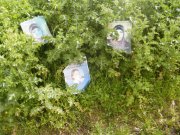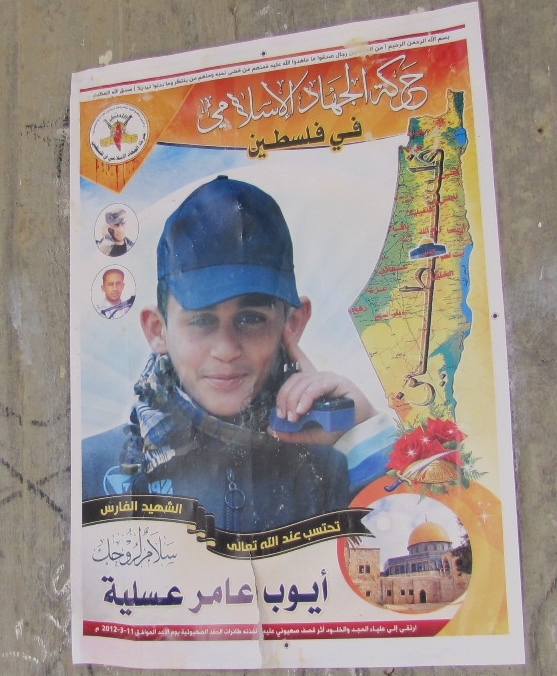Tag: Gaza
-
Rachel Corrie & Hana Shalabi: Flowers among thistles of Israeli occupation
by Nathan Stuckey 21 March 2012 | International Solidarity Movement, Gaza Rachel Corrie was murdered nine years ago by an Israeli bulldozer. Hana Shalabi has spent the last 34 days on hunger strike an Israeli prison, yet she is accused of no crime. This was not the first time Hana has been held in Israeli…
-
His story told by his mother: Ayoub Asalya, 12 years old, killed by an Israeli missile
by Rosa Schiano 19 March 2012 | il Blog di Oliva Ayoub Asalya, 12, was going to school on Sunday morning when he was killed by an Israeli missile. On the walls of his house there is a poster with his image. Ayoub is shown smiling with a cap on his head. “The nights before he…
-
They will never beg
by Johnny Bravo 19 March 2012 | International Solidarity Movement, Gaza I have read several accounts over the last few days of how life in Southern Israel has become unbearable for the people living there. In retaliation for the latest provocation by Israel over 200 rockets were fired from Gaza into Israel. 11 people were…


